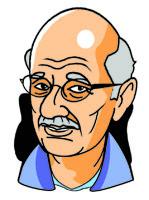 Dear Dadu,
Dear Dadu,
From your first letter on how to fight injustice in the world, I noted the need for the right “external position” or platform for me: (i) suiting my talents and abilities, compensating as far as possible for my weaknesses and inadequacies, enabling me to perform in the best possible way, (ii) matching the level at which I want to fight injustice, and (iii) enabling me to build alliances that will assist and strengthen my struggle against injustice.
From your second letter, I noted the necessity for “internal strengthening”: focusing time and effort on understanding and making my own that standard of truth and right which is God’s, judging the actions and motivations of others with generosity while judging my own actions and motivations ruthlessly, asking for God’s forgiveness as well as forgiveness from others so that I am enabled to change in areas of my life where I need to improve by extending love even to those I don’t like or those who hate me, by ensuring that I maintain purity and justice in the means that I adopt to fight injustice, by repeatedly choosing to pay the cost of doing what is right, by reading the biographies of great people who have fought against injustice, by linking up with others who are committed to fighting injustice in a just and humane way, and by the use of inspirational things such as music and songs.
All that is a hugely demanding list, which is beginning to transform me. But am I finally ready now to hear what is the best strategy for fighting injustice in the world?
Love,
Akanksha
Dear Akanksha,
Wonderful! I am so glad that you are noticing that these things are transforming you. However, the changes are much deeper than you think: sometimes even we ourselves don’t fully see the changes but they can be seen much more clearly and fully by our friends, by members of our family, and even by our enemies. We don’t need to worry about whether any changes are visible or not, we need to focus simply on doing the right things – which you have noted carefully above.
So yes, you are indeed now beginning to be ready to think about what is the best strategy for fighting injustice in the world.
Sometimes there are individual injustices – a wife being unjustifiably rough on her husband or children, children being unfair to parents, a husband beating his wife, someone abusing you because of your caste or colour or gender, and so on. Of course we should take up such cases of individual injustice.
However, you will notice that many or even most such individual cases of injustice are embedded in wider ideas and beliefs, or even the rules and forms of organisation of a school or university, or the company in which you work.
Moreover, there are also beliefs, rules and structures that operate in a comprehensive away right across our nation or even right across the world.
For example, in our country, the traditional way of discriminating against the lowered castes was to banish them from the most attractive and resource-rich parts of a city or village.
Internationally, the rules of trade disadvantage the producers of food and other basic goods, while advantaging big companies that make and sell industrial products.
Similarly, both the informal and the written rules of finance give greater advantages to people who are already rich, and greater disadvantages to people who are poor.
Starting small
Injustice needs to be fought at all levels, and it is best to begin with the first incident of injustice you yourself now come across which angers you – because, in all probability, that incident will also anger others you know. In any case, experience shows that it is one person’s anger, one person’s actions and words that move others against that injustice.
If you are faithful in fighting small injustices you will find that naturally leading on to the struggle against bigger injustices. Though I am not an uncritical admirer of Gandhiji, this principle is well illustrated by his life. He left India to study in England at the age of 18 and, when he was only 23 years old, went to South Africa as a lawyer where he took on the struggle against racism, prejudice and injustice against Indians there. It was his struggle there for the civil rights of Indians that had prepared him for taking over the leadership of our national movement, in his mid-forties, within only five years of his return to India.
Each of our choices leads to its own consequences and, just as the best possible way is opened to us by our choices, so it is our experiences that reveal who our true friends are. Some friends will fall away, but other and much better friends will support us.
One final point: The fight against injustice takes place by actions as well as by words. It becomes too easy to slip into demonizing individuals. We must keep in mind that our fight is not against human beings (however evil they may appear to be at any moment), because they are always capable of change. In the final analysis, the best victory is when our worst enemies see the error of their ways and move over to the side of truth and justice.
Love,
Dadu
Published in the January 2015 issue of the Forward Press magazine
Forward Press also publishes books on Bahujan issues. Forward Press Books sheds light on the widespread problems as well as the finer aspects of the Bahujan (Dalit, OBC, Adivasi, Nomadic, Pasmanda) community’s literature, culture, society and culture. Contact us for a list of FP Books’ titles and to order. Mobile: +919968527911, Email: info@forwardmagazine.in)





